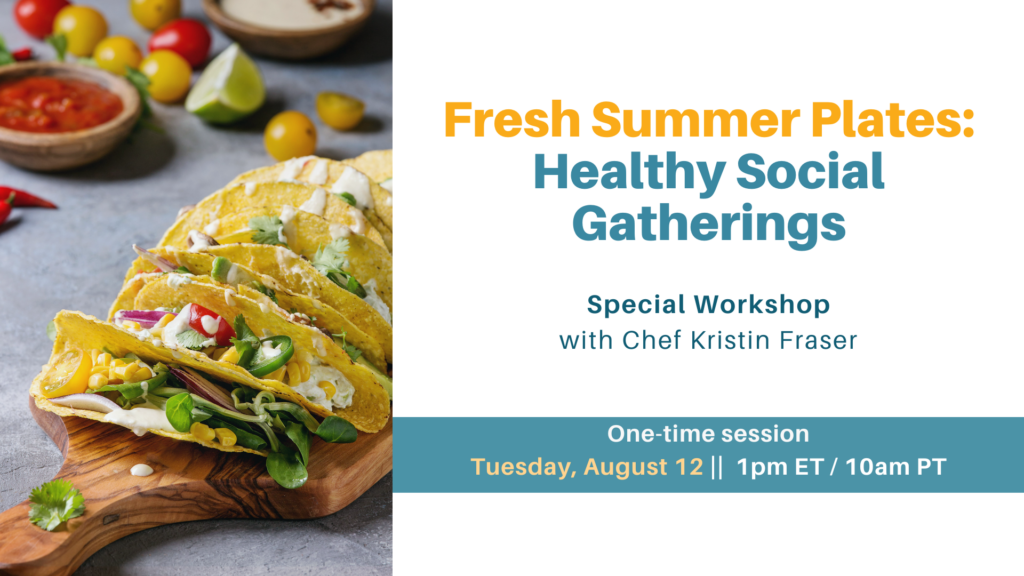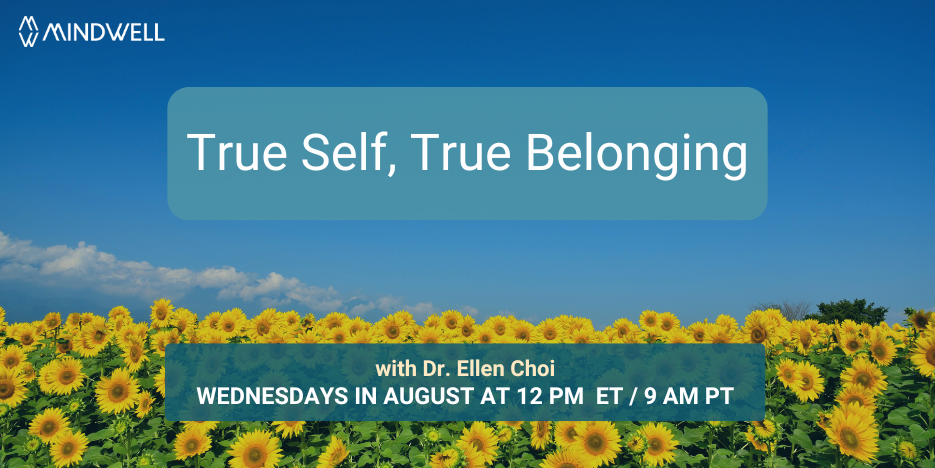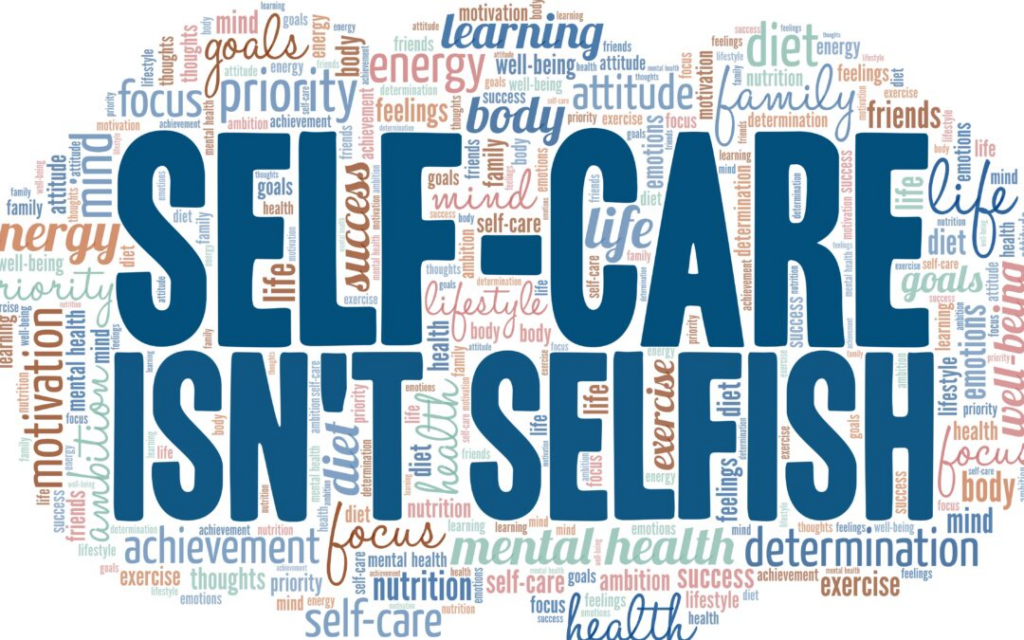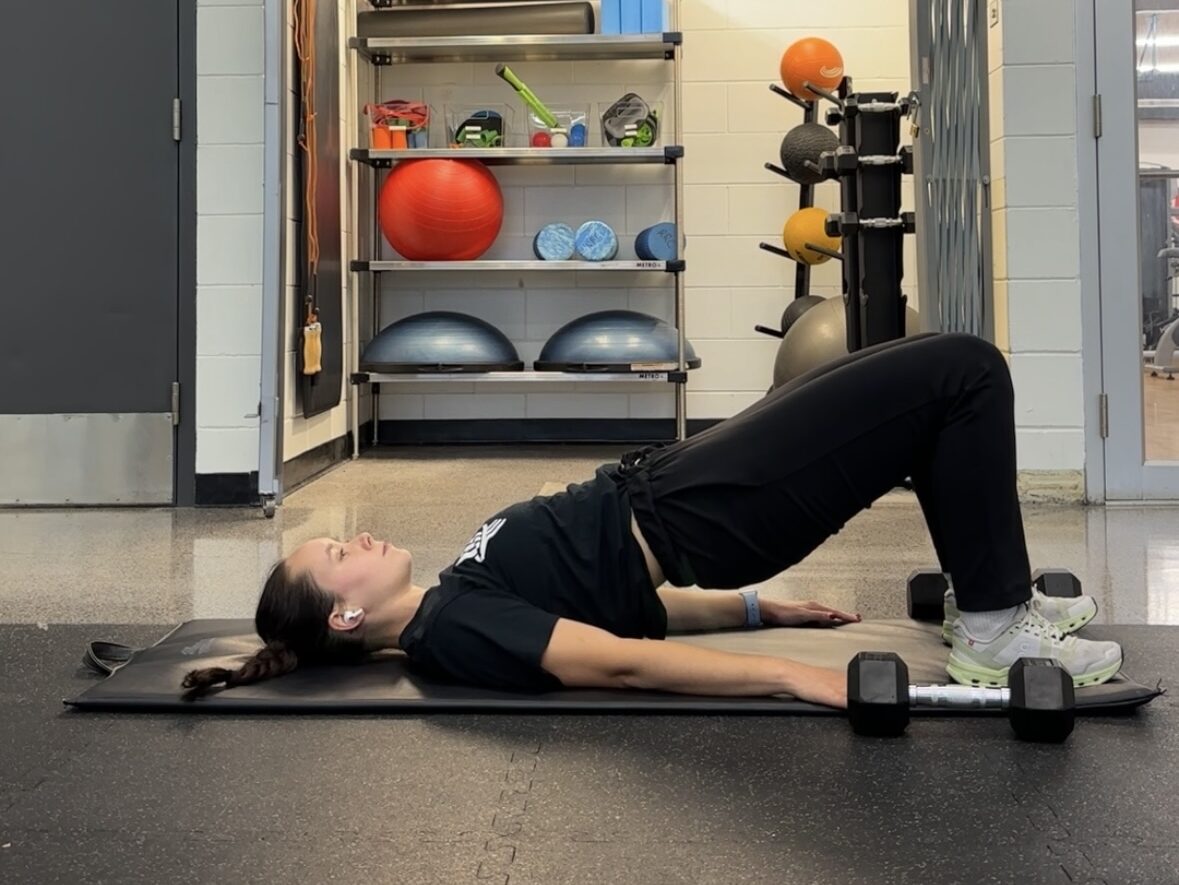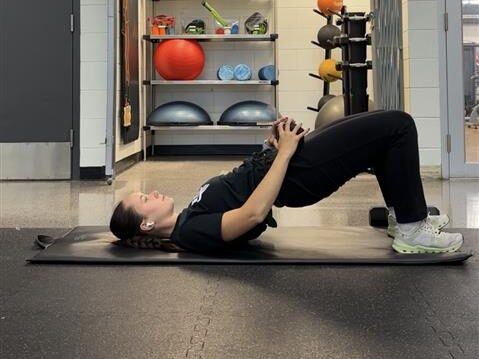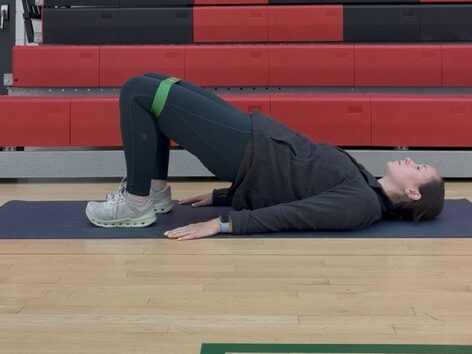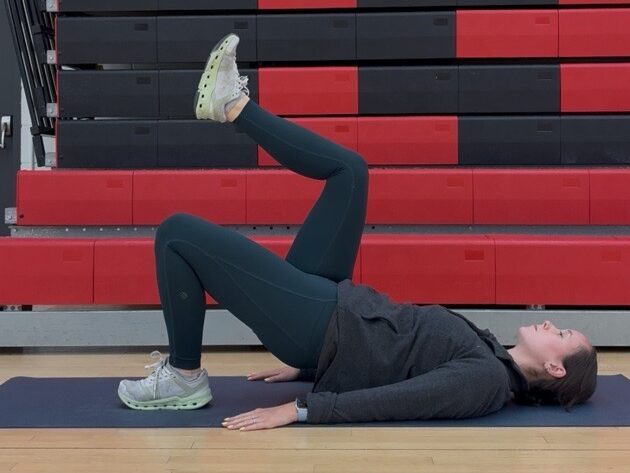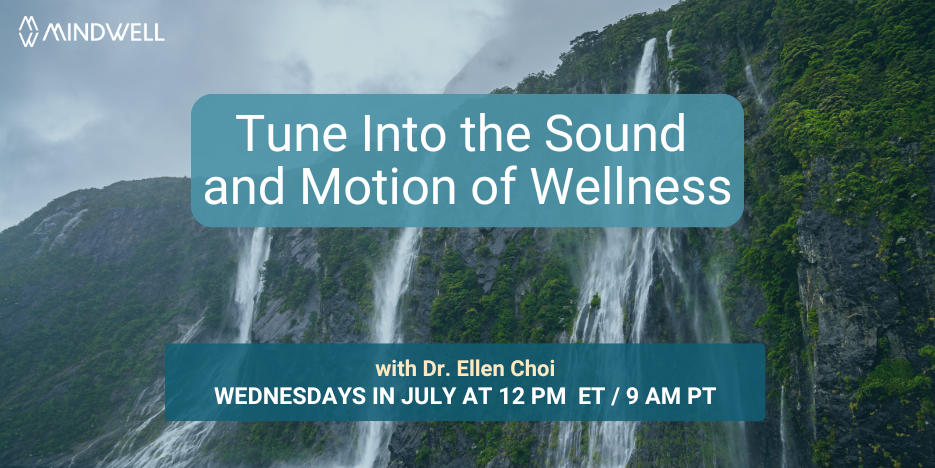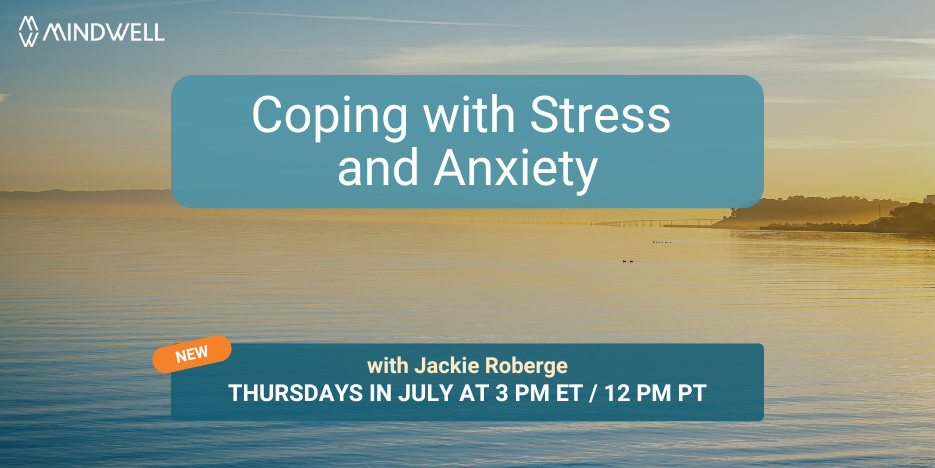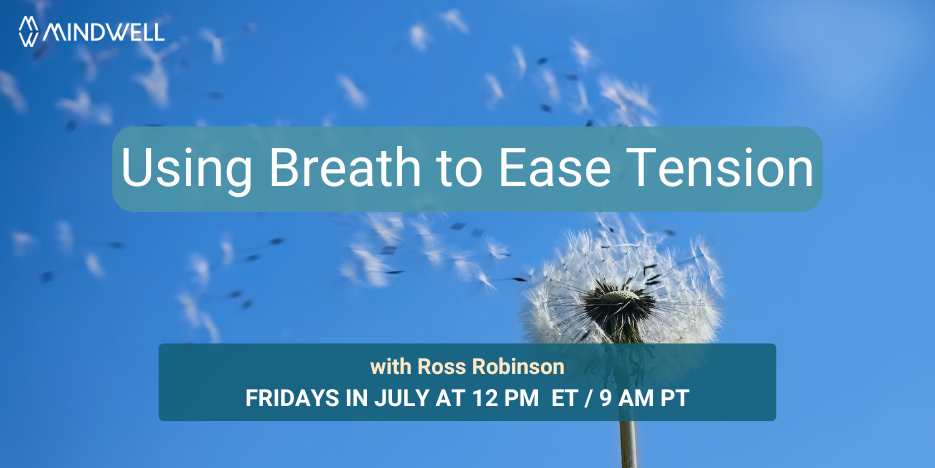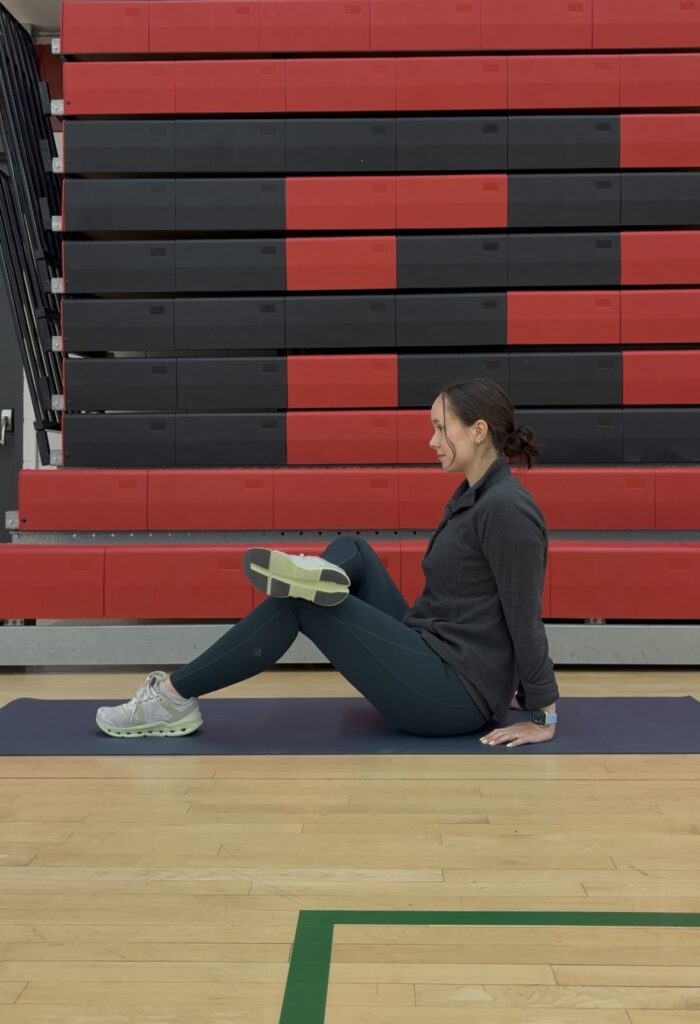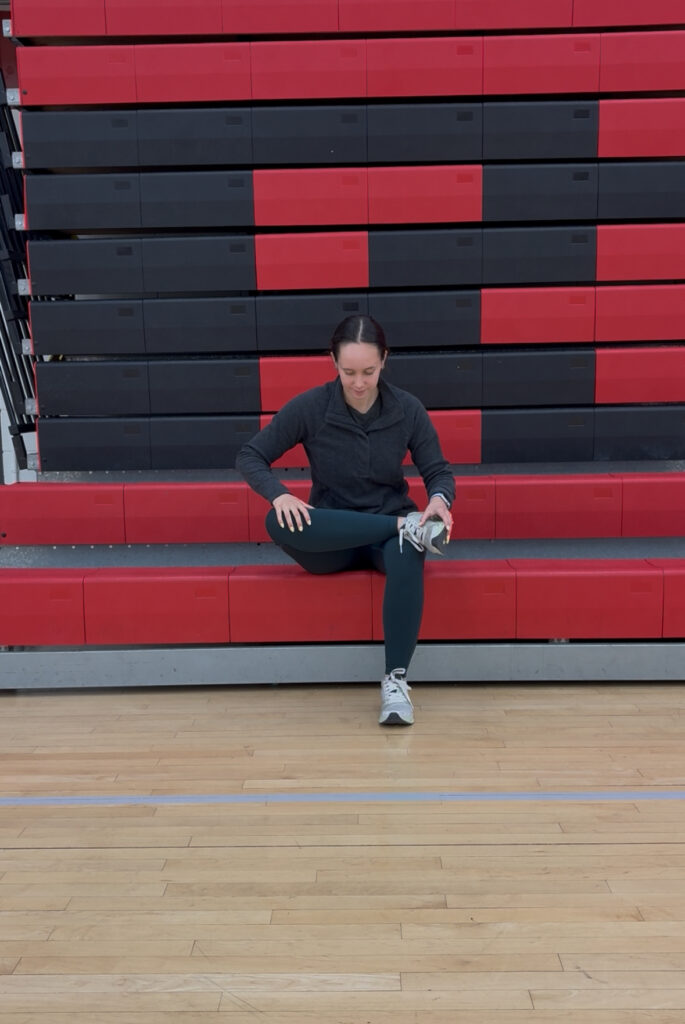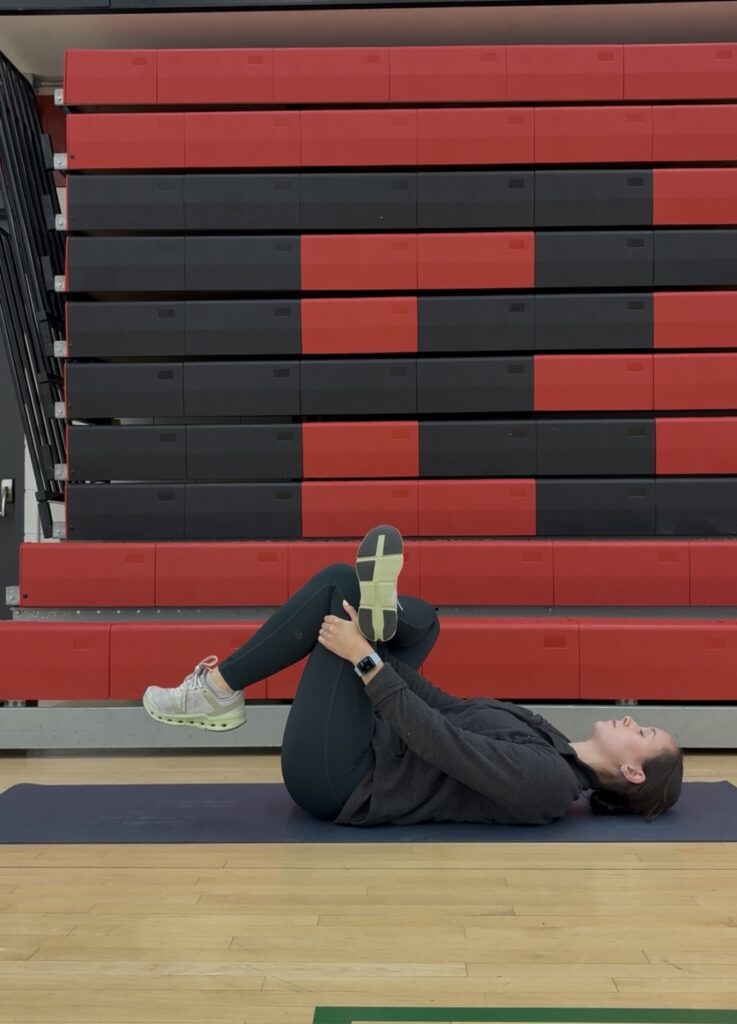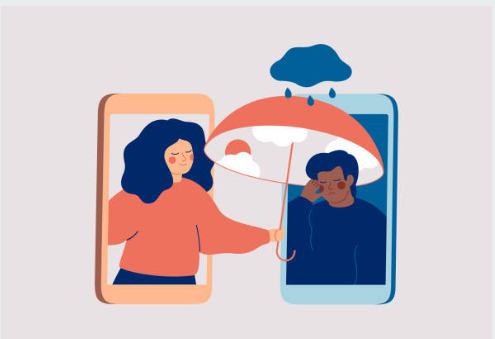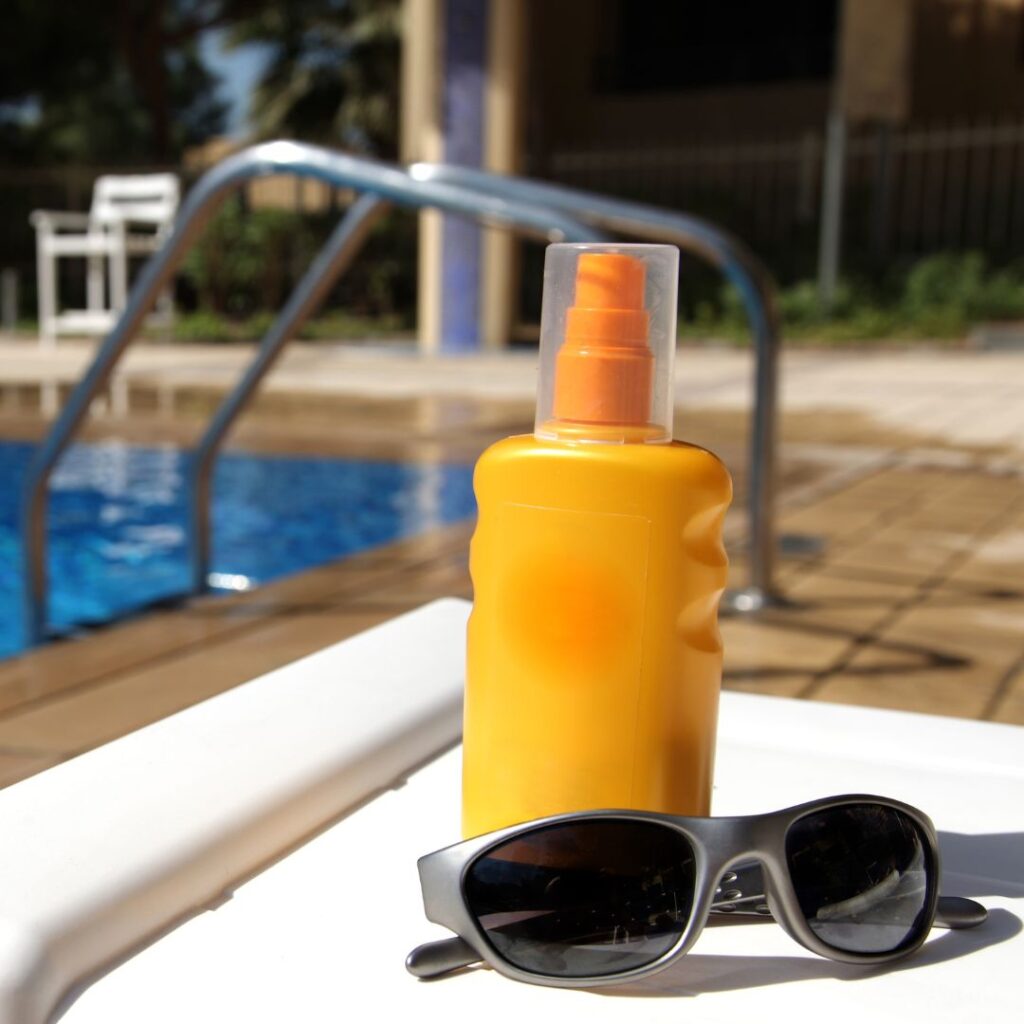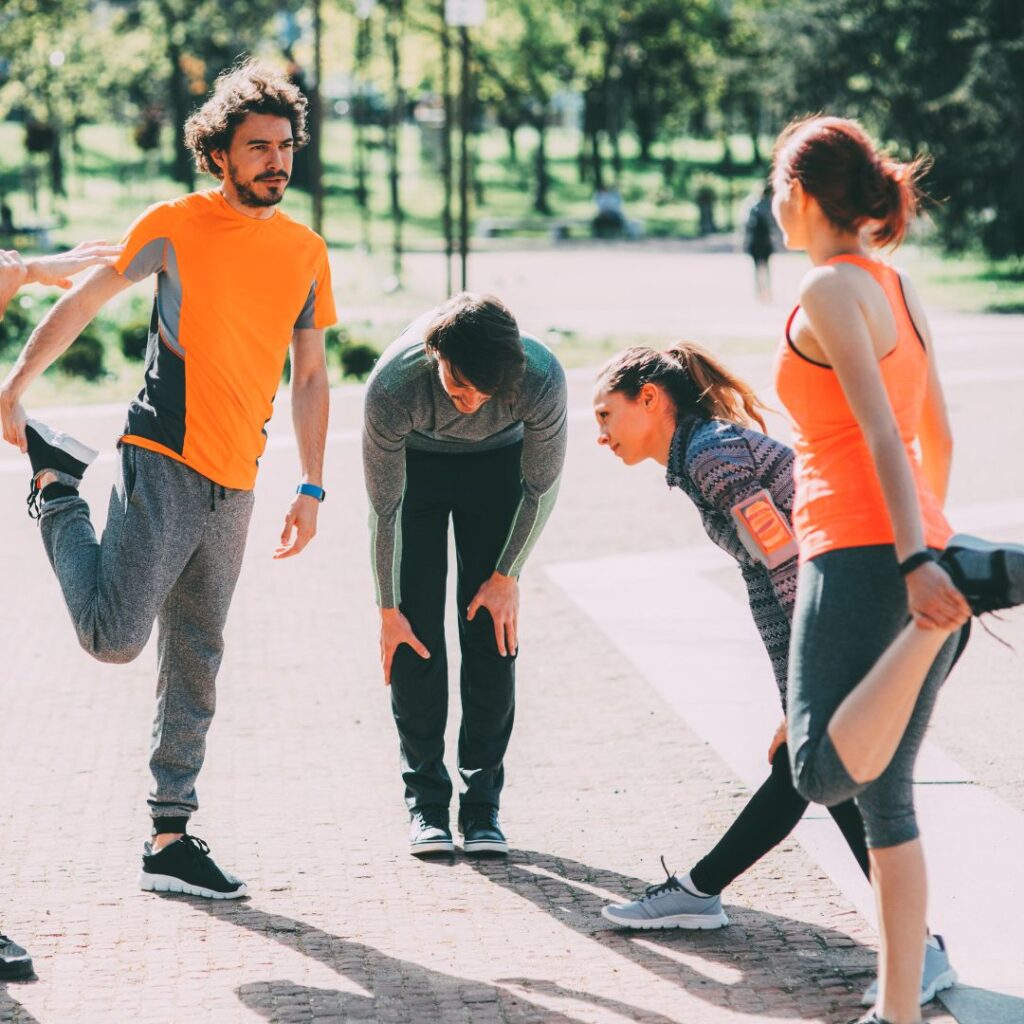August Stretch of the Month: The Quadriceps Stretch
The Quadriceps Stretch is a simple yet powerful way to improve flexibility in the front of the thigh, relieve tension in the hips and knees, and support better posture. Tight quads can limit your range of motion, contribute to low back discomfort, and even affect how efficiently you move during daily activities or workouts. Whether you’re looking to improve mobility, recover from a tough leg workout, or simply move more comfortably, this stretch is a must-have in your routine.
How to do it:
Side-Lying Variation (Beginner-Friendly)
Starting Position:
Lie on your side with your legs stacked and your head supported by your bottom arm.
Stretch with Control:
Bend your top knee and grab your ankle or foot with your top hand. Gently pull your heel toward your glutes while keeping your hips stacked and core engaged. If grabbing your ankle is difficult, loop a strap or towel around your foot to make the stretch more accessible.
Hold & Breathe:
Hold for 20–30 seconds, breathing deeply. Switch sides and repeat.
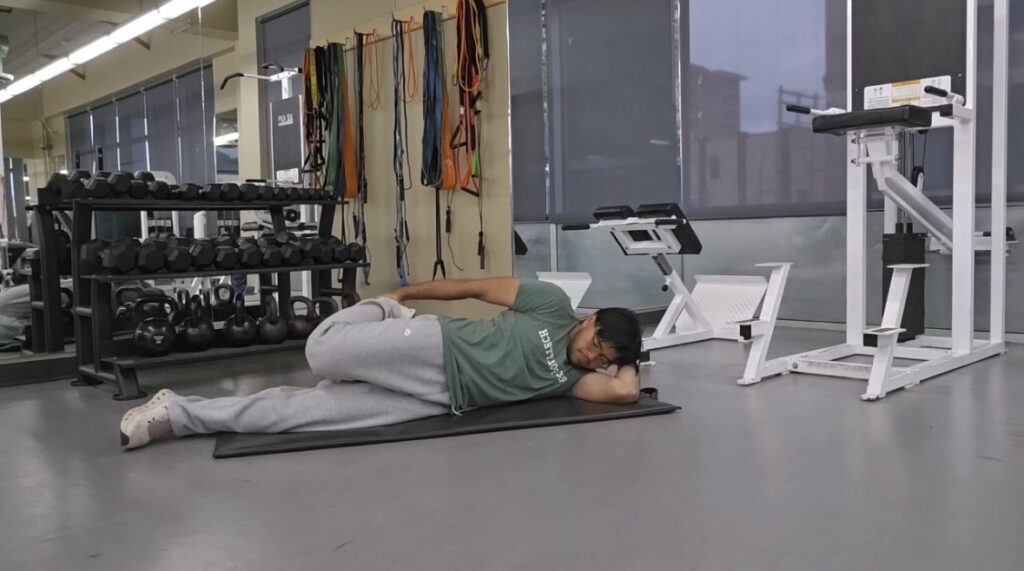
Standing Variation
Starting Position:
Stand tall, holding onto a wall or sturdy surface for balance if needed.
Stretch with Control:
Bend one knee and bring your heel toward your glutes. Grab your ankle or foot with your hand, keeping your knees close together and your torso upright. If grabbing your ankle is difficult, loop a strap or towel around your foot to make the stretch more accessible. For a deeper stretch, squeeze your glute muscles.
Hold & Breathe:
Hold for 20–30 seconds, then switch legs. Avoid arching your back—keep your core lightly engaged.
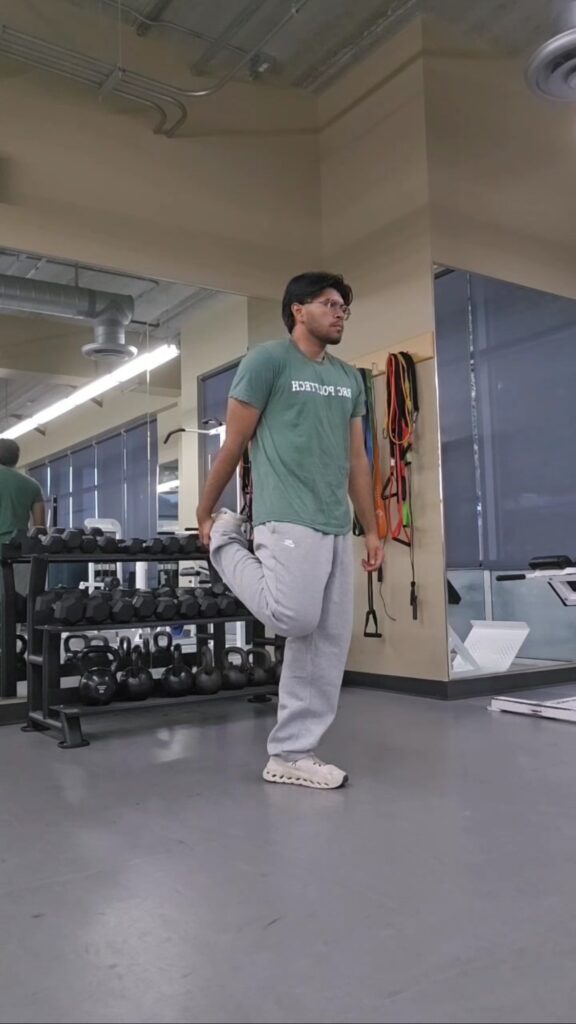
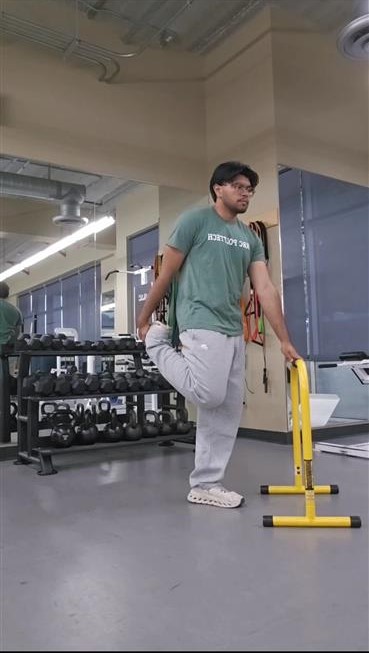
Benefits of This Stretch
Increases Flexibility in the Quads:
Helps lengthen the muscles in the front of the thigh for smoother, more comfortable movement.
Supports Knee and Hip Health:
Reduces tension that can pull on the joints and affect alignment.
Improves Posture:
Opens up the front of the body, counteracting time spent sitting or leaning forward.
Enhances Performance & Recovery:
Keeps the legs feeling loose and mobile for running, squatting, cycling, and other activities.
Accessible for All Fitness Levels:
Easily modified for comfort and mobility needs.
Try It Today!
Whether you’ve just finished a workout, spent the day on your feet, or are trying to offset hours of sitting, the quadriceps stretch is a quick, effective move to keep your legs feeling their best. Take your time, breathe deeply, and enjoy the release.
Want to see the quad stretch in action? Head over to our Instagram for a video tutorial!
Sources
Stretching Your Quads: A Comprehensive Guide
4 Quad Stretches Everyone Should Know | Best Health Magazine Canada


